
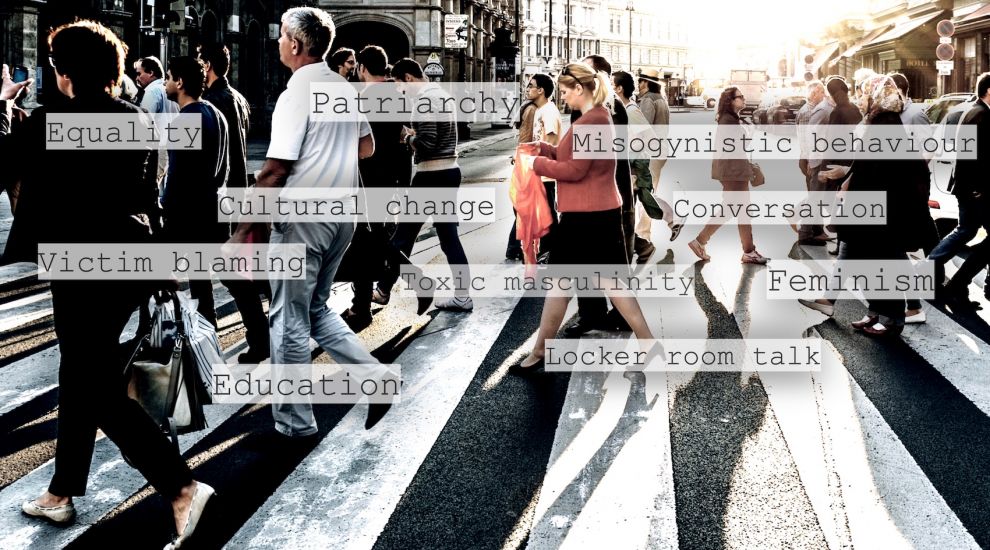

Stopping victim blaming, challenging ‘locker room talk’, and tackling “toxic masculinity culture that drives misogynistic behaviour” are among the things women who have experienced sexual harassment in Jersey believe could be done to stamp out the issue.
Last week’s news of the death of 33-year-old Sarah Everard in South London - combined with the findings of a recent YouGov survey exposing the extent of sexual harassment against women in the UK - have prompted thousands of women to take to social media to share their views.
While Jersey is considered by many to be a ‘safe' place, these national conversations have prompted local women to speak out about their experiences to show that there are also issues to be addressed locally.
This week, Express has been sharing a series of articles on their experiences of sexual harassment of varying degrees, steps they take to feel safer when they walk alone at night, and why, according to local Police, calling out more 'minor' harassment could help prevent more serious sexual crimes.
Today, the women have shared reflections on what can be done to make the island a safer place...
They have said there are some small steps men can take to help ease women’s worry at night - such as crossing the road if they find themselves behind a woman, making sure they do not walk to close to someone or invade their personal space, or even offer to walk their friends home.
But there are also deeper issues at play that need to be addressed, not just by men, but by society as a whole.
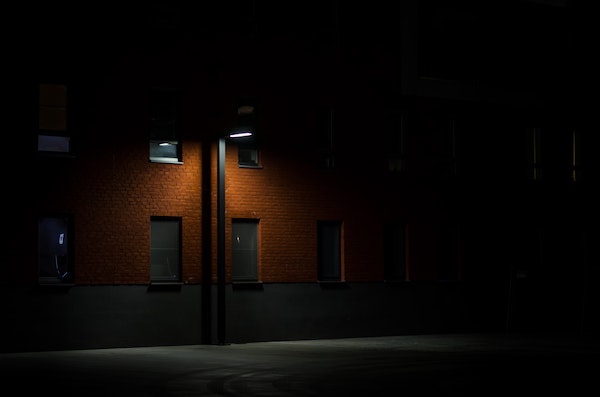
Pictured: Crossing the road if they find themselves behind a woman, making sure they do not walk too close to someone or invade their personal space, or even offer to walk their friends home are some of the things have been suggested for men to do to help women feel safer.
For Jasmine (23), men could start by “listening without judgment” and “believing [women] when we tell them our experiences."
The next step, she says, is to “call out other men who exhibit predatory or misogynistic behaviour” and “have [women’s] backs."
As Kelci (30) says, men should try to understand the problem and become more aware of it. They should also try and change their perception on things such as ‘locker room talk’ or other similar sexually-charged comments about women, both of which she says she has called out in the past.
“I just think it comes from ignorance and it’s passed off as lad banter, they say they do not mean anything by it, but the damage has already been done,” she says.
“They blame us for getting worked up about it or say that we are hysterical. They feel it’s acceptable to talk about women however they want, but men need to start calling their friends out or it’s not going to change.”
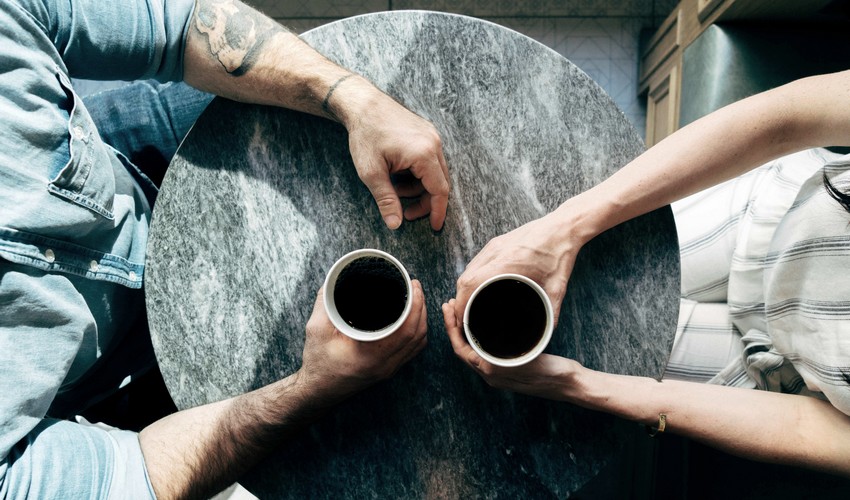
Pictured: “Unacceptable behaviour” should be challenged regardless of who it comes from, Deputy Alves said.
She also believes the assumptions people make based on women’s clothing need to be challenged.
“It’s things like the thoughts men have that if you are wearing a short skirt you are drawing attention,” she says. “We should be able to wear what we want.”
Referring to the comments some people made about why Sarah Everard was walking home alone at night, she adds: “What do you expect us to do? Stay indoors all the time? We should be able to do that and feel safe.”
This, Kelci says, is part of a culture of victim blaming, which sees women blamed for putting themselves in the position of being assaulted, rather than focusing on the actions of the perpetrator.
She recalls a police ad in which it was implied that if a woman drank too much she could be sexually assaulted.
“It should be directed to ‘men stop sexually harassing women’ - nothing is going to change until we change the narrative of this story,” she says.
For Deputy Carina Alves, misogynistic views about gender roles also need to be challenged, as well as “unacceptable behaviour” regardless of who it comes from.
“It’s seen as a jolly among a group of men, it’s just normal,” she says. “Even when they have partners, until they have daughters they cannot realise the damage that it does.
“People do not think about how it would feel if it was the other way around.”
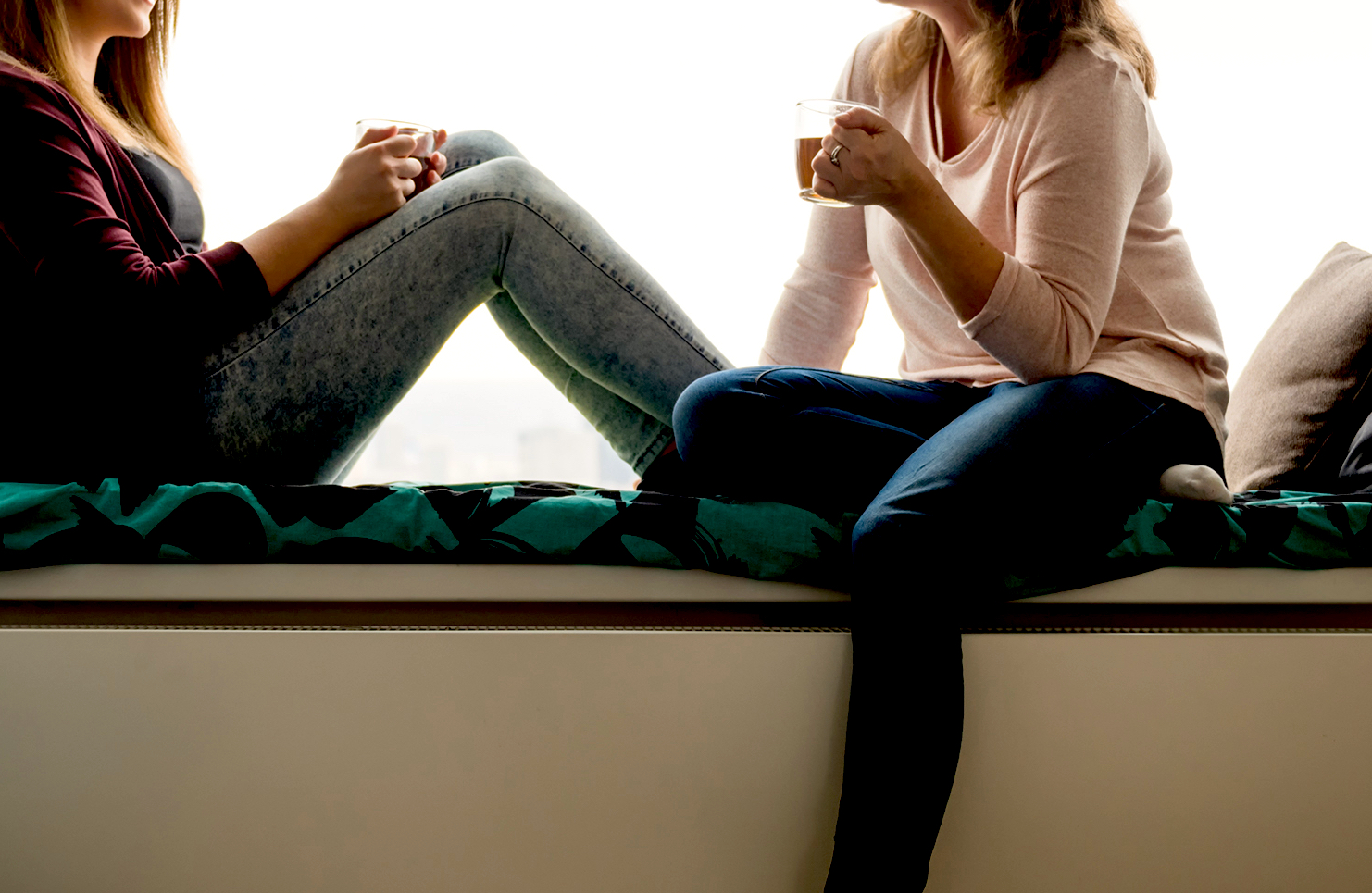
Pictured: Mary says the conversation needs to start with teenagers.
As a mother-of-two, a boy and a girl, Mary* (48) says the conversation needs to start with teenagers and that she has always been “very, very, vocal” about women’s rights and discrimination with her family.
She says it is part of an “ongoing conversation” with her son, whose views are “more shaped by what he sees."
“His views on equality are based on seeing his mother have a career and all these things,” she explains.
“I do not want to see men blamed for that, but I do want us to tackle this as a society,” Mary adds. “I do not want to have my daughter’s generation have these automatic thoughts. There needs to be a shift so that men will have an understanding of what makes this scary.”
For Jane*, deeper structural changes are required to tackle the issue, starting with the way assaults or harassment are spoken about.
“When the [UK survey on sexual harassment] was published, it said ‘97% women have been harassed’ it should be ‘men have harassed 97% of women’."
For this to happen, people not only need to stop blaming women for men’s actions but also need to listen to women’s concerns instead of dismissing them or reacting viscerally to them, she says.
“There are comments that aim to quash women’s genuine problems. Some people cannot seem to sympathise, they just call women hysterical and blame them.”
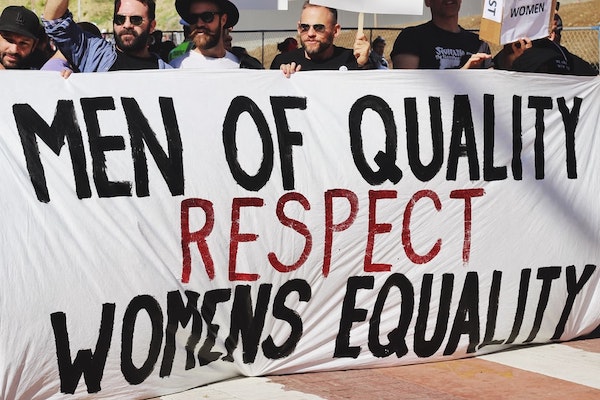
Pictured: Feminism, Jane says, has a big part to play in that cultural change and the “huge amount of education” that it will require.
“A lot of the reactions that comes when women speak out about this is from men who say, ‘We cannot flirt anymore.' If you do not know the difference between flirting and sexual harassment, there is a big problem,” she adds
“As a gay woman, I do not have an urge to follow other women home, stare at them or expose myself. Sexuality has nothing to do with it. It’s about entitlement and power, it’s about positioning themselves above someone else.”
Jane says those incidents are however only the symptoms of a bigger problem: patriarchy, which does not just apply to men’s attitudes but also includes women themselves. “Women need to stop saying, 'She was asking for it,'” she says.
Jane says she was "shocked" to see a scene in the Real Housewives of Jersey during which the protagonists were talking about a young man’s body in what she describes as a "cringey" way.
“How can we as women fight for something and ask for respect if we do not give it back? The objectification of people needs to stop,” she says.
“Women are just as bad as men, men are judged if they are not tall enough or do not have enough muscles, it’s damaging. The question is what we can do collectively about it? It takes awareness and collective, ongoing pressure.”
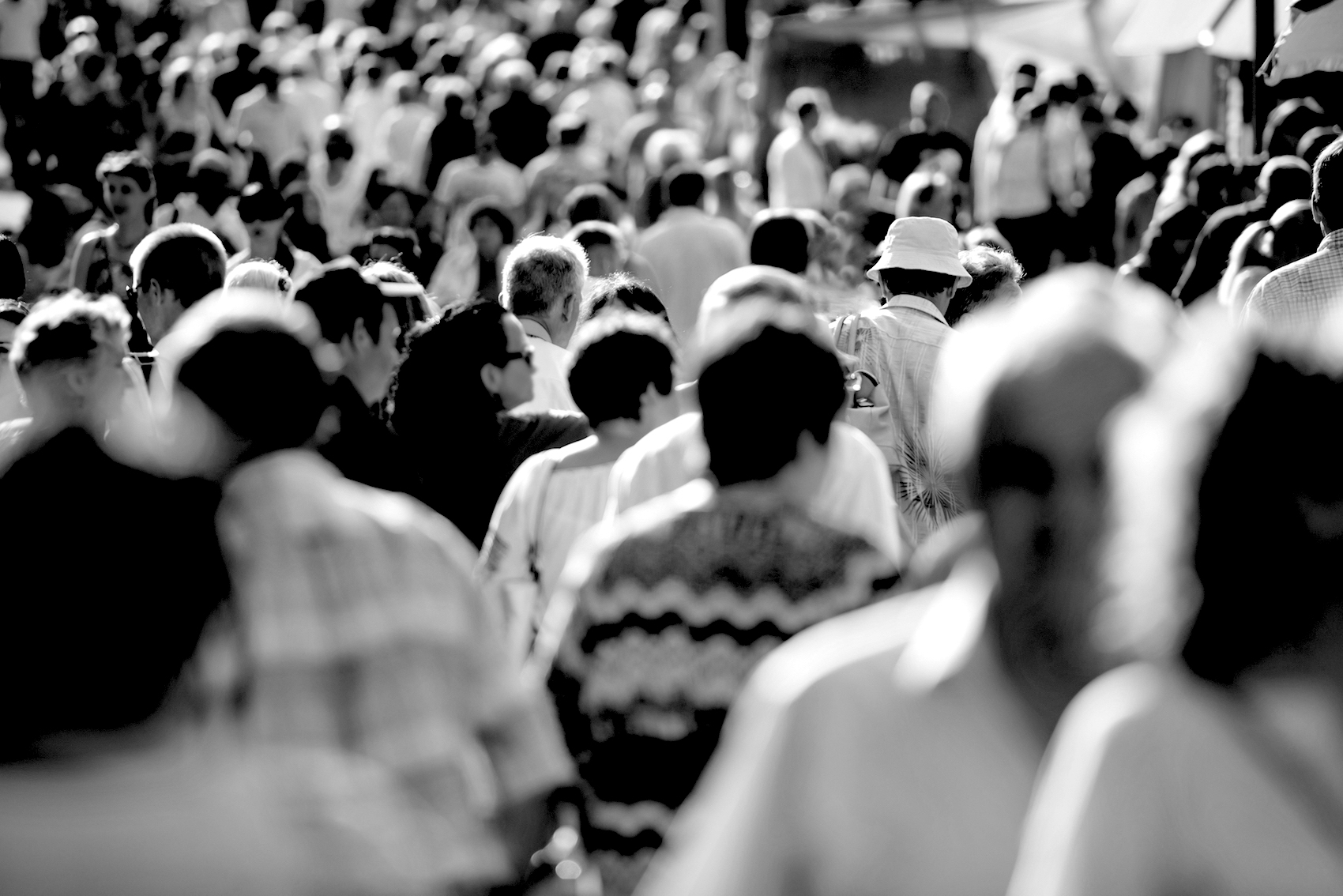
Pictured: "They do not see that it is not about educating men, it’s about educating a system," Jane says.
Feminism, Jane says, has a big part to play in that cultural change and the “huge amount of education” that it will require, but a lot of people are still “confused” about its role.
“Feminism is seen as this man-hating thing, which is archaic,” Jane says. “They do not see that it is not about educating men, it’s about educating a system. The culture is almost subliminal unless you are self-aware enough to question your beliefs, that’s why there is so much unconscious bias.
“Men deal with lots of issues that do not help them, such as toxic masculinity or lad culture, which is particularly bad here, I have never known it to be so bad.”
“The island is incredibly homophobic,” Jane adds. “Men play so well to a stereotype of what they think men should be, the culture is so uniform that you are branded 'gay', 'f****t', 'whipped', or a 'p***y' if you show any sense of caring or showing emotions.
“Gay men said that growing up here they couldn’t be themselves and couldn’t express how they felt, which is causing huge problems for their mental health.
“I believe there is a huge undercurrent of issue of men’s mental health as a whole and that we only see the tip of the iceberg.
“Toxic masculinity culture drives this misogynistic behaviour towards us, but it also damages men.”
*Names changed to protect anonymity.
If you have been sexually assaulted or experienced sexual harassment, you can contact:
Dewberry House (Sexual Assault Referral Centre), 6 Plaisance Terrace, La Route Du Fort. Email: dewberryhouse@gov.je Telephone: 01534 888222
Jersey Action Against Rape Email: help@jaar.je Confidential helpline: 01534 482800
Independent Sexual Violence Advisors (ISVAs) (Specialist advisors providing tailored support to victims and survivors of sexual violence) Telephone: 01534 880505
"It's almost a part of life, it's shocking" - Women's experiences of sexual harassment
"I would not dream of walking home in high heels" - What women do to make themselves feel safe
Comments
Comments on this story express the views of the commentator only, not Bailiwick Publishing. We are unable to guarantee the accuracy of any of those comments.